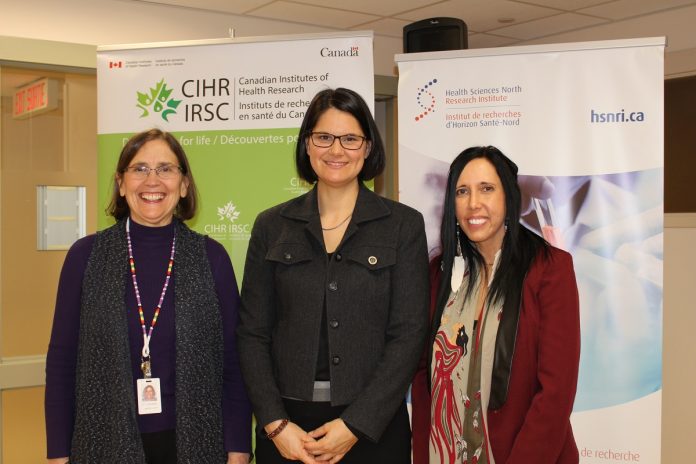Carrie Bourassa, Scientific Director, CIHR-IAPH discusses the issue of poor health among Indigenous communities and says research is the key to tackling it
The Canadian Institutes of Health Research-Institute of Aboriginal Peoples’ Health (CIHR-IAPH) is one of the 13 founding institutes of CIHR, established in 2000. My recent appointment as the latest Scientific Director of the CIHR-IAPH allows me the chance to consider our mandate and our opportunities to bolster the self-determination of Indigenous communities to become healthier Nations, groups and individuals. As researchers, we are committed to working with the priorities Indigenous communities see for themselves in order to advance their progress in becoming healthier communities.
The IAPH fosters the advancement of a national health research agenda to promote and improve the health of First Nations, Inuit and Métis Peoples in Canada through research, knowledge translation and capacity building. The Institute’s pursuit of research excellence is enhanced by our respect for community research priorities and Indigenous knowledge, values and cultures. Our goal is to contribute to the improvement of the health and wellbeing of Indigenous people in every part of Canada. We will stimulate health research with and for Indigenous communities, build a community of Indigenous researchers who can engage in “two-eyed seeing” research (conducted using Indigenous research paradigms side by side with other paradigms such as those involving Western epistemologies), form research partnerships with organisations in Canada and abroad, involve Indigenous communities respectfully in every project undertaken, and create new knowledge.
Addressing the issue of poor health
Canada’s recent Truth and Reconciliation Commission (TRC) presented all Canadians with 94 Calls to Action. Some of these are calls to the government to address the issue of the poor health of Indigenous Peoples in Canada. The TRC calls upon governments to acknowledge that the current state of Indigenous health is a direct result of previous Canadian government policies, including Aboriginal residential schools, and to recognise and implement the healthcare rights of Indigenous people as identified in international law, constitutional law, and under the Treaties. Other calls to action include having the federal government identify measurable goals to determine the gaps and to report on progress toward closing those gaps in health outcomes between Indigenous and non-Indigenous Peoples, increasing the number of Indigenous healthcare professionals, and compelling those who can effect change within the Canadian healthcare system to recognise the value of Indigenous healing practices and to make them available when treating Indigenous clients.
Good research can inform good policy and practice and thereby help to achieve good results for people in need. Good research into Indigenous health requires us to see the Indigenous communities we want to work with as partners in Indigenous health research from the early stage of setting research priorities right through to reporting on our research in a way that is accessible, meaningful and, therefore, useful to Indigenous communities. We must be guided by the Indigenous communities that are our research partners. These communities are not subjects of research; they are active participants in the entire research enterprise. Indigenous communities have protocols for sharing knowledge, and researchers must learn and respect these protocols when undertaking research.
Building research capacity
An important part of the CIHR-IAPH mission is to build research capacity in the First Nations, Inuit and Métis communities. We will do this by mentoring, supporting, and encouraging a new generation of Indigenous people to become health researchers and to create new knowledge that will improve the health and wellbeing of Indigenous communities. We will also help to negotiate partnerships and alliances between Indigenous communities and non-Indigenous health research organisations and institutes at the local, regional, national and international levels.
It is central to our mission and our values that, in creating new knowledge to benefit Indigenous peoples, the CIHRIAPH supports health research that respects Indigenous cultures. Part of our task is to make sure that this is how all CIHR-funded health research is conducted and to act as a resource for all of the other CIHR institutes, to ensure that all researchers understand the Indigenous perspectives on the issues they are researching and include the Indigenous perspectives in their work.
The challenges to helping to create healthier Indigenous Peoples and communities are large, but the benefits of doing good research in a way that respects and contributes to Indigenous communities and actively involves Indigenous communities in the research project make the effort worthwhile. I look forward to seeing what we can accomplish with Indigenous communities in my years as Scientific Director.
Carrie Bourassa, PhD
Scientific Director
The Canadian Institutes of Health Research – Institute of Aboriginal Peoples’ Research
Carrie.Bourassa@cihr-irsc.gc.ca











